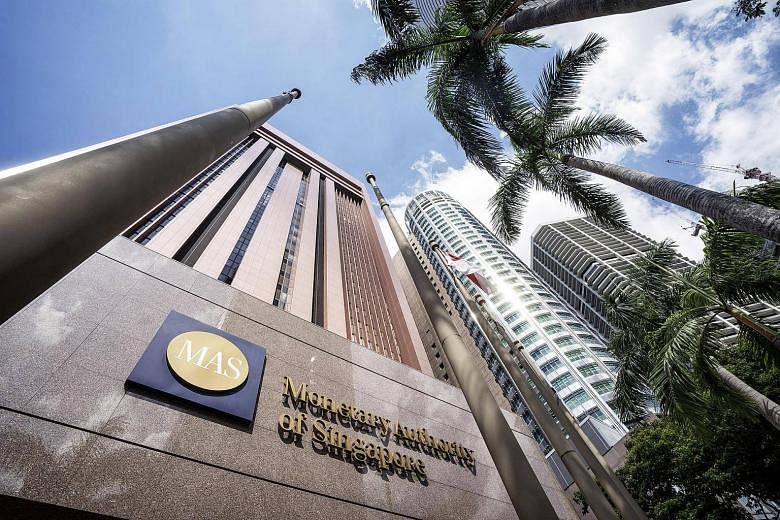The uncertain economy ahead means Singaporean households should review their investments and take note of emerging risks such as those in property and corporate bonds, the Monetary Authority of Singapore (MAS) said yesterday.
The warning comes amid prolonged weak growth, low interest rates and rising political risks, which have raised concerns about global financial stability, the MAS noted in its latest Financial Stability Review.
"In particular, before investing in property, investors should be aware that rising vacancy rates, declining rentals and impending interest rate increases mean that they may not always be able to rely on rental income to service their investment property loans."
Currency fluctuations and shifting monetary policies in foreign economies could also affect the cost of debt obligations and rental returns for overseas properties, the MAS added.
Bonds were also highlighted by the MAS. It noted that some firms with debt coming due could face repayment difficulties amid sluggish growth and an impending rise in interest rates.
"Notably, a number of issuers in the shipping and oil-related sectors have defaulted in recent months, while others have moved to restructure upcoming debt payments," the MAS said.
Still, the MAS said the bond market is expected to remain resilient overall, with defaulted bonds comprising just about 1.5 per cent of outstanding non-financial corporate bonds.
MAS stress tests also suggest that most companies here would remain resilient to interest rate and income shocks, the regulator said.
Credit Suisse economist Michael Wan noted that aside from rising interest rates, there will be challenges as Singapore pushes on with a structural transformation of the economy, away from manufacturing towards services, and up the value chain.
"Progress has been quite slow and we haven't seen the fruits of that labour yet. 2017 will continue to be a year with labour pangs in structural transformation."
MAS noted, however, that on the whole, households here have an "ample financial buffer" to weather the stress of soft economic and labour market conditions.
Still, it warned that as slower growth weighs on earnings, some households might find it harder to service their debts, especially if they have taken on a high amount.
Households should start planning for retirement early and take a long-term view when deciding on property purchases, MAS said.
After all, the more households pay towards property, the less they have left over for retirement.
An HSBC survey last year found that households tend to underestimate their retirement expenditure, the MAS noted.
To supplement their retirement income, households could consider various options of monetising their housing assets, it added.
These include moving to smaller homes with the option of taking up the Silver Housing Bonus, renting out their properties or spare bedrooms, or applying for the Lease Buyback Scheme offered by the Housing Board.


